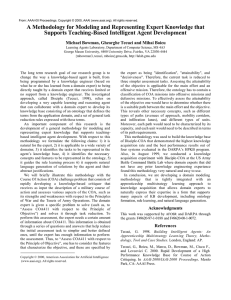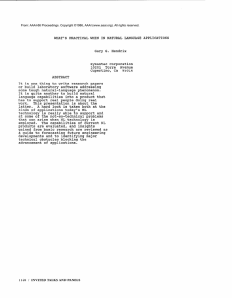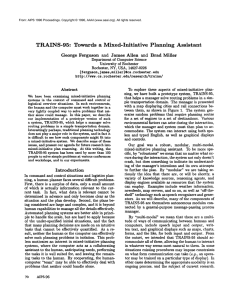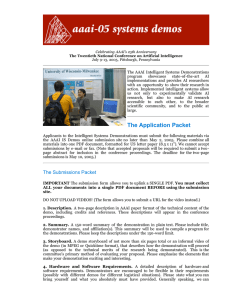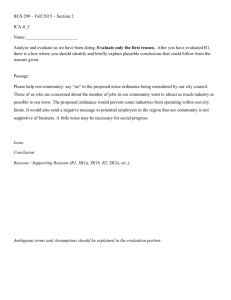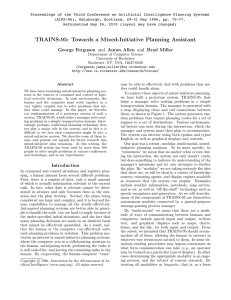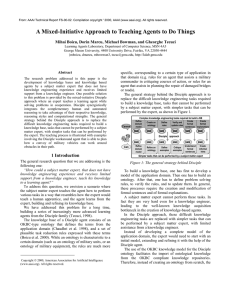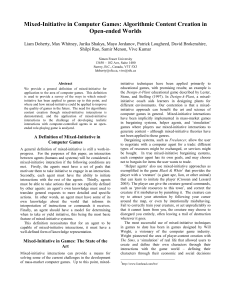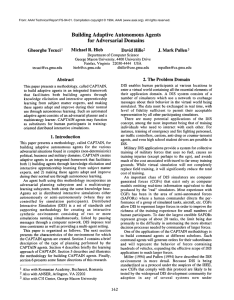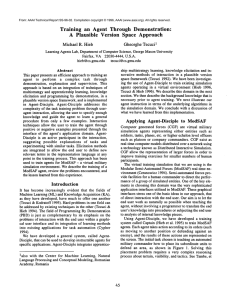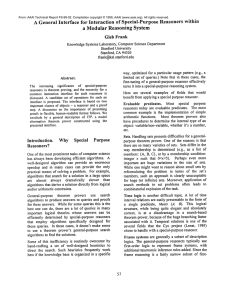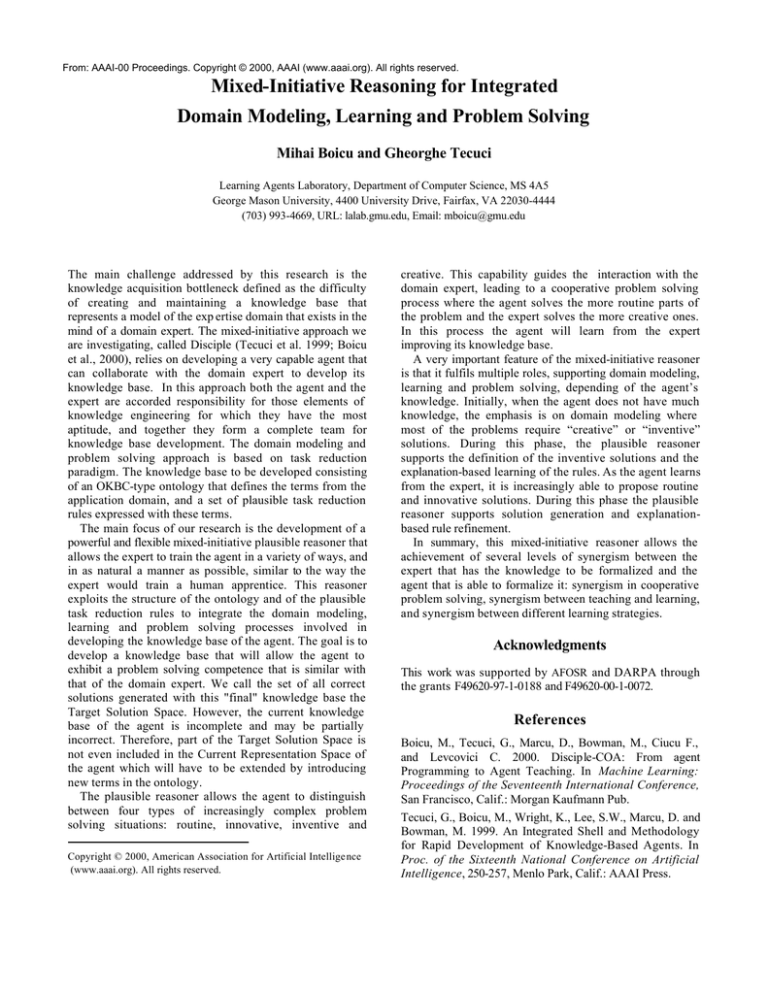
From: AAAI-00 Proceedings. Copyright © 2000, AAAI (www.aaai.org). All rights reserved.
Mixed-Initiative Reasoning for Integrated
Domain Modeling, Learning and Problem Solving
Mihai Boicu and Gheorghe Tecuci
Learning Agents Laboratory, Department of Computer Science, MS 4A5
George Mason University, 4400 University Drive, Fairfax, VA 22030-4444
(703) 993-4669, URL: lalab.gmu.edu, Email: mboicu@gmu.edu
The main challenge addressed by this research is the
knowledge acquisition bottleneck defined as the difficulty
of creating and maintaining a knowledge base that
represents a model of the exp ertise domain that exists in the
mind of a domain expert. The mixed-initiative approach we
are investigating, called Disciple (Tecuci et al. 1999; Boicu
et al., 2000), relies on developing a very capable agent that
can collaborate with the domain expert to develop its
knowledge base. In this approach both the agent and the
expert are accorded responsibility for those elements of
knowledge engineering for which they have the most
aptitude, and together they form a complete team for
knowledge base development. The domain modeling and
problem solving approach is based on task reduction
paradigm. The knowledge base to be developed consisting
of an OKBC-type ontology that defines the terms from the
application domain, and a set of plausible task reduction
rules expressed with these terms.
The main focus of our research is the development of a
powerful and flexible mixed-initiative plausible reasoner that
allows the expert to train the agent in a variety of ways, and
in as natural a manner as possible, similar to the way the
expert would train a human apprentice. This reasoner
exploits the structure of the ontology and of the plausible
task reduction rules to integrate the domain modeling,
learning and problem solving processes involved in
developing the knowledge base of the agent. The goal is to
develop a knowledge base that will allow the agent to
exhibit a problem solving competence that is similar with
that of the domain expert. We call the set of all correct
solutions generated with this "final" knowledge base the
Target Solution Space. However, the current knowledge
base of the agent is incomplete and may be partially
incorrect. Therefore, part of the Target Solution Space is
not even included in the Current Representation Space of
the agent which will have to be extended by introducing
new terms in the ontology.
The plausible reasoner allows the agent to distinguish
between four types of increasingly complex problem
solving situations: routine, innovative, inventive and
Copyright © 2000, American Association for Artificial Intellige nce
(www.aaai.org). All rights reserved.
creative. This capability guides the interaction with the
domain expert, leading to a cooperative problem solving
process where the agent solves the more routine parts of
the problem and the expert solves the more creative ones.
In this process the agent will learn from the expert
improving its knowledge base.
A very important feature of the mixed-initiative reasoner
is that it fulfils multiple roles, supporting domain modeling,
learning and problem solving, depending of the agent’s
knowledge. Initially, when the agent does not have much
knowledge, the emphasis is on domain modeling where
most of the problems require “creative” or “inventive”
solutions. During this phase, the plausible reasoner
supports the definition of the inventive solutions and the
explanation-based learning of the rules. As the agent learns
from the expert, it is increasingly able to propose routine
and innovative solutions. During this phase the plausible
reasoner supports solution generation and explanationbased rule refinement.
In summary, this mixed-initiative reasoner allows the
achievement of several levels of synergism between the
expert that has the knowledge to be formalized and the
agent that is able to formalize it: synergism in cooperative
problem solving, synergism between teaching and learning,
and synergism between different learning strategies.
Acknowledgments
This work was supported by AFOSR and DARPA through
the grants F49620-97-1-0188 and F49620-00-1-0072.
References
Boicu, M., Tecuci, G., Marcu, D., Bowman, M., Ciucu F.,
and Levcovici C. 2000. Disciple-COA: From agent
Programming to Agent Teaching. In Machine Learning:
Proceedings of the Seventeenth International Conference,
San Francisco, Calif.: Morgan Kaufmann Pub.
Tecuci, G., Boicu, M., Wright, K., Lee, S.W., Marcu, D. and
Bowman, M. 1999. An Integrated Shell and Methodology
for Rapid Development of Knowledge-Based Agents. In
Proc. of the Sixteenth National Conference on Artificial
Intelligence, 250-257, Menlo Park, Calif.: AAAI Press.

